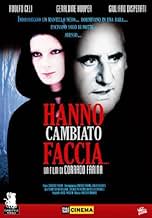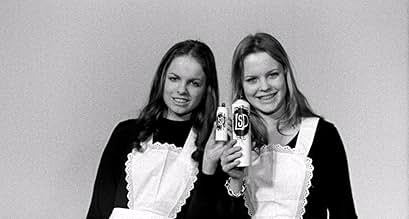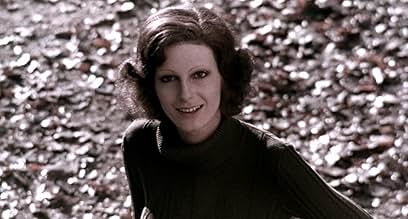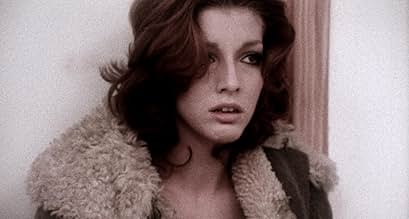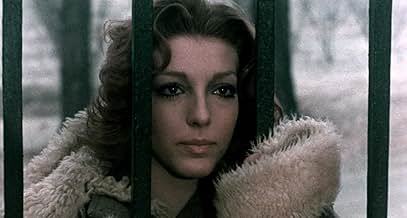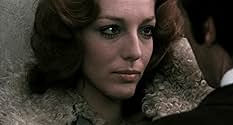In this allegory on capitalism, director of a known car corporation invites one of his employees to his country villa to give him the good news. He just got promoted. However, the old man is... Read allIn this allegory on capitalism, director of a known car corporation invites one of his employees to his country villa to give him the good news. He just got promoted. However, the old man is not what he seems and promotion has a price.In this allegory on capitalism, director of a known car corporation invites one of his employees to his country villa to give him the good news. He just got promoted. However, the old man is not what he seems and promotion has a price.
- Director
- Writers
- Stars
- Awards
- 1 win total
- Alberto Valle
- (as Giuliano Disperati)
- Priest
- (uncredited)
- Scientist in spot commercial
- (uncredited)
- Actor in commercial spot
- (uncredited)
- Director
- Writers
- All cast & crew
- Production, box office & more at IMDbPro
Featured reviews
Fascinating weirdness. Intelligent nonsense.
Alberto Valli is an inconspicuous employee in a large automobile company. His modest job status is perfectly illustrated by the floor he works on. One morning, he hears from the CEO that none other than the company's founder and Vice President, Giovanni Nosferatu, has summoned Alberto to his mansion in a remote mountain area. With a name like that, Alberto should know better than to accept, but he's honored and undertakes the journey. He meets up with a half-naked hitchhiker and a whole bunch of dead-silent mountain villagers before arriving at the estate. Nosferatu is a strange fella, or what else did you expect, but he does make some very impossible-to-refuse offers to Alberto.
There are many bizarre gimmicks in "They've Changed Faces", and the fact they remain unexplained only makes the film more intriguing. What is a topless hippie girl doing in the middle of nowhere? What is the meaning of Nosferatu's mute henchmen driving around the estate in white Fiat 500s? Why does Alberto leave behind a gorgeous naked girl and sleeps around with a creepy, asexual secretary instead? How brilliant is the idea of playing advertisements when sitting down in a chair or stepping into a shower?
The essence of the film, namely that old-fashioned Gothic vampires have evolved and now form the elite members of the business, media, advertisement, sports,religious, artistic world, is truly unique. Adolfo Celi is fantastic, as usual, but I would have preferred he had more screen time. The musical score by Amadeo Tommasi (also known for his excellent work for "The House with Laughing Windows) is the best thing in an already very good movie. Writer/director Corrado Farina's other cult-horror flick "Baba Yaga" might be more popular and better known, but personally I think this one is a much better film.
Capitalism sucks. Literally.
Cool-as-hell parable on evils of capitalism
Ultra-strange Italian adaption of Dracula
All this is well and good but what takes it up a level is the overall strangeness of the presentation. The vampire's house is a crumbling old building but inside it is very chic and modern. His henchmen drive around in white minis while sporting jump suits and helmets. While inside the house the hero is exposed to commercials; cumulating in an excellent later scene where a selection of newly developed adverts are shown to Mr Nosferatu in his board room. It's all very disconcerting and, to be honest, it's very hard predicting where this one is going to go. This is very inventive genre film-making that's for sure. The soundtrack by Amedeo Tommasi is great as well, with a variety of tones and themes. It helps set the atmosphere, which is one of real mystery. There is also a good cast too. Adolfo Celi is well suited to the role of Giovanni Nosferatu. But perhaps most interesting of all is Geraldine Hooper who was most famous for her turn as a male homosexual in Dario Argento's Deep Red. Frankly, it was only due to this film that I was even aware that she was not a bloke!
This is one of the most original Italian genre pictures from the 70's. It's one that certainly needs to be seen by a far wider audience.
Capitalism is a Vampire
Did you know
- TriviaDebut role and only career nude scenes for Francesca Modigliani. She made one more film after this and then quit acting.
- Quotes
Actor in commercial spot: A shower isn't a shower if your water pipes don't contain A-1 Tonic.
Actress in commercial spot: With A-1 Tonic, you're younger, stronger ... happier to live and love!
Actor in commercial spot: ["A" in Italian, sighed as an ecstatic "Ah!"] A-1 Tonic caresses your skin.
Actress in commercial spot: [also with the ecstatic "Ah!"] I'd also like to feel A-1 Tonic caress my skin.
Actor in commercial spot: You can't, unless you surrender. without shame, young and naked.
Actress in commercial spot: I am young, and I'm also...
[Alberto turns off water, cuts off ad]
- ConnectionsSpoofs La Strada (1954)
- How long is They Have Changed Their Face?Powered by Alexa
Details
- Release date
- Country of origin
- Language
- Also known as
- They've Changed Faces
- Filming locations
- Chieri, Torino, Piemonte, Italy(Giovanni Nosferatu's house)
- Production company
- See more company credits at IMDbPro
- Runtime
- 1h 36m(96 min)
- Color
- Sound mix
- Aspect ratio
- 1.85 : 1

